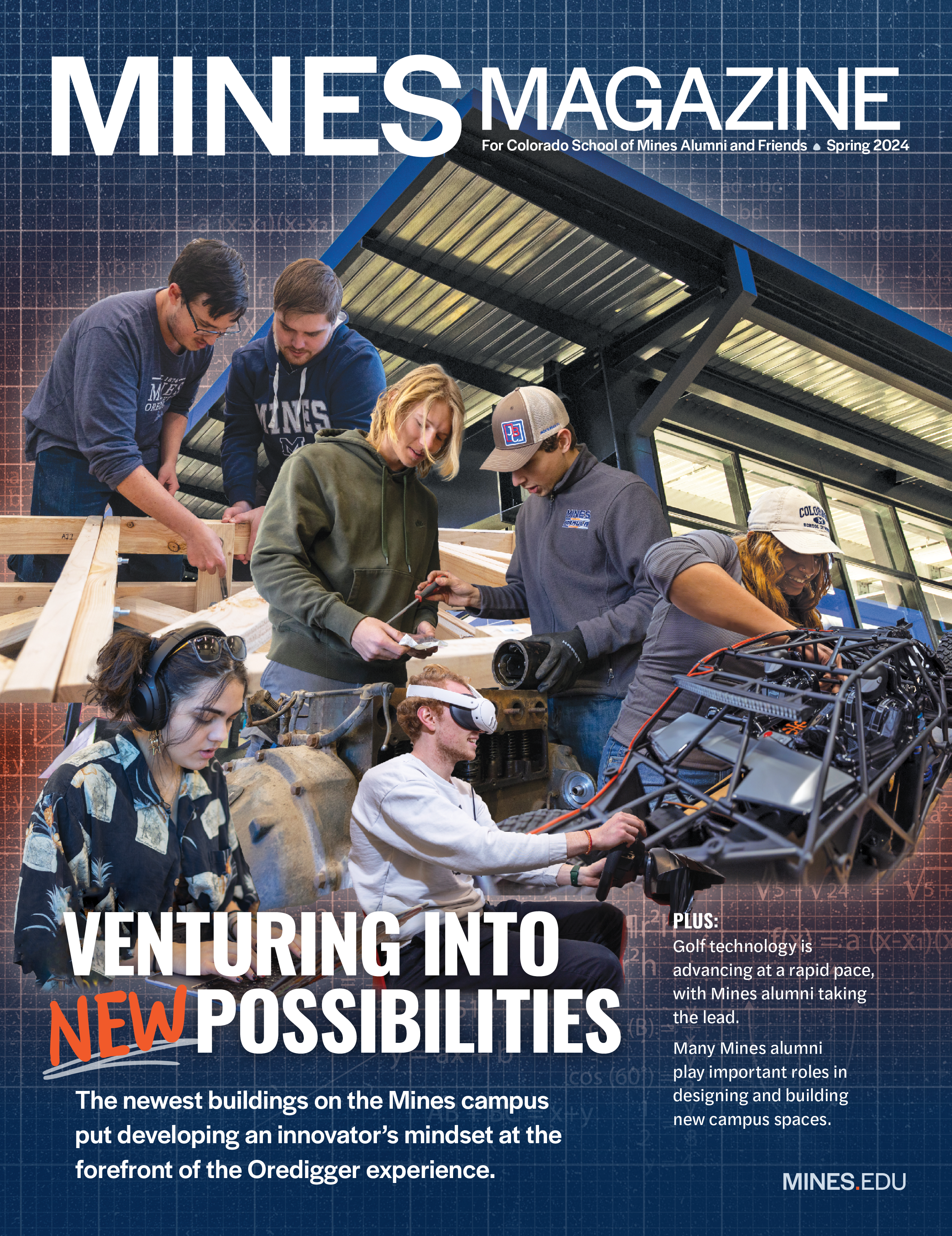International influence: Mines alumni pursue careers all over the world, shaping the oil and gas industry’s global landscape
Mines is known around the world for producing leaders in the oil and gas industry, and a degree from the school can be a ticket to living in an interesting location.
A significant portion of Mines’ alumni community lives and works abroad, expanding the school’s international influence and making valuable global connections. But the experience is not without its challenges.
Alumni abroad say the strong work ethic and out-of-the-box thinking Mines instills has helped them overcome difficulties they would never have faced in the U.S. But these international experiences also gain alumni career-boosting skills and confidence and demonstrate Mines’ reputation for producing graduates with not only outstanding technical expertise, but real-world problem-solving ability and grit.
Here are the stories of five alumni who embraced the challenges of working abroad, built successful careers and made lifelong friendships in the process.
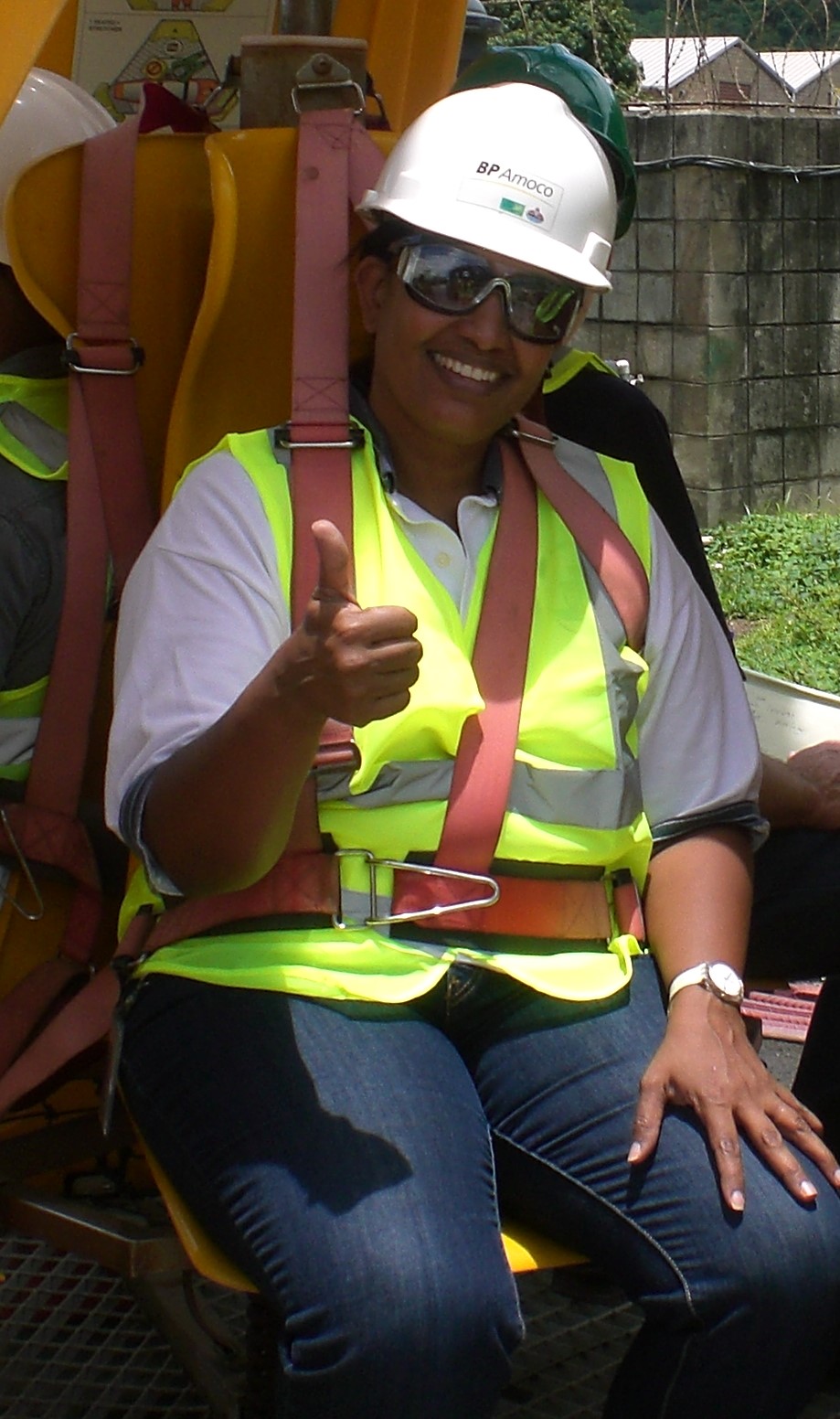
UK and Trinidad: Making career connections
Roxanne Skeene ’83 is very familiar with international experiences. Originally from Trinidad, she came to the United States for her undergraduate education and worked in Houston for seven years. She eventually decided to return home to work for Trinidad’s state oil company and later went to work for BP.
Though she enjoyed being home, when BP offered to send her to the U.K. for three years, Skeene jumped at the chance. “Trinidad is a very small island, and we don’t get the visibility we need at BP unless we leave,” she said.
In the U.K., Skeene learned about managing operations while partnering with other oil companies, something that wasn’t done in Trinidad. “It was eye-opening. It broadened my perspective,” she said.
But the most important advantage she gained from her U.K. experience was the contacts she made through networking. One woman, who is now a vice president at BP, became her mentor. “I call her when I have a career challenge, and we chat,” Skeene said. “I would never be able to do that if I had stayed in Trinidad.”
Several other people she met in the U.K. have moved into positions of influence at BP. One is responsible for approving expenses for her group’s projects in Trinidad. She believes that knowing him personally helped when she presented a new plan for developing a well location the company had already rejected twice.
Her petition was successful. “Had it been someone else, I might have had a harder time,” she said. “It’s easier when you can put a face to a person and you have a bit of background.”
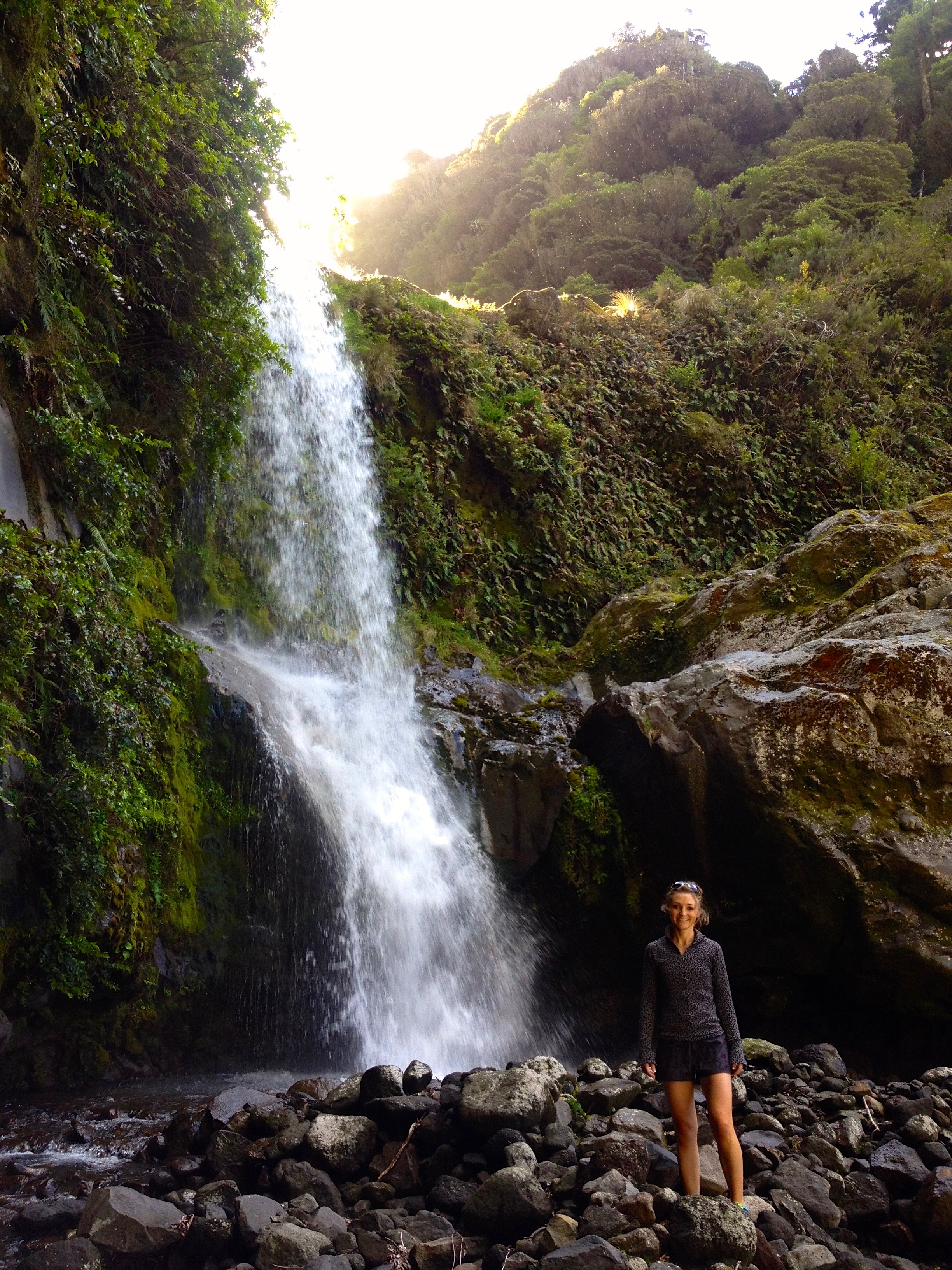
New Zealand: Accepting challenging assignments
As a freshman at Mines, Ashley Lantz ’05 decided to major in petroleum engineering after hearing a professor say that graduates in the field could work anywhere in the world. “That pretty much sold me,” she said.
After obtaining her bachelor’s degree and working in the U.S. for eight years, Lantz was offered an opportunity in New Zealand, where she now works as a completions engineering manager for Todd Energy.
She found the opening through a former colleague and fellow Mines graduate. “Mines has a really strong international network,” Lantz said. “Lots of Mines expats are working all over the world, and we’re highly regarded and well known in the Southern Hemisphere.”
Living in New Zealand has given Lantz the opportunity to see the country and travel in Southeast Asia and Australia as well. But she didn’t go for the scenery.
“The geology is very complex in New Zealand. It’s a big technical challenge, and I came for the opportunity to learn and grow in engineering,” she said.
According to Lantz, Mines did a great job of preparing her for international work. The school encouraged her to seek out career-building challenges, and its large international population taught her to work with a diverse range of people. “Exposure to different cultures sets you up for success internationally,” she said.
Lantz has been in New Zealand for five years and plans to stay until she’s ready for a new challenge. “You know you’re learning when you’re a little bit uncomfortable,” she said. “You always have to challenge yourself and push the boundaries.”
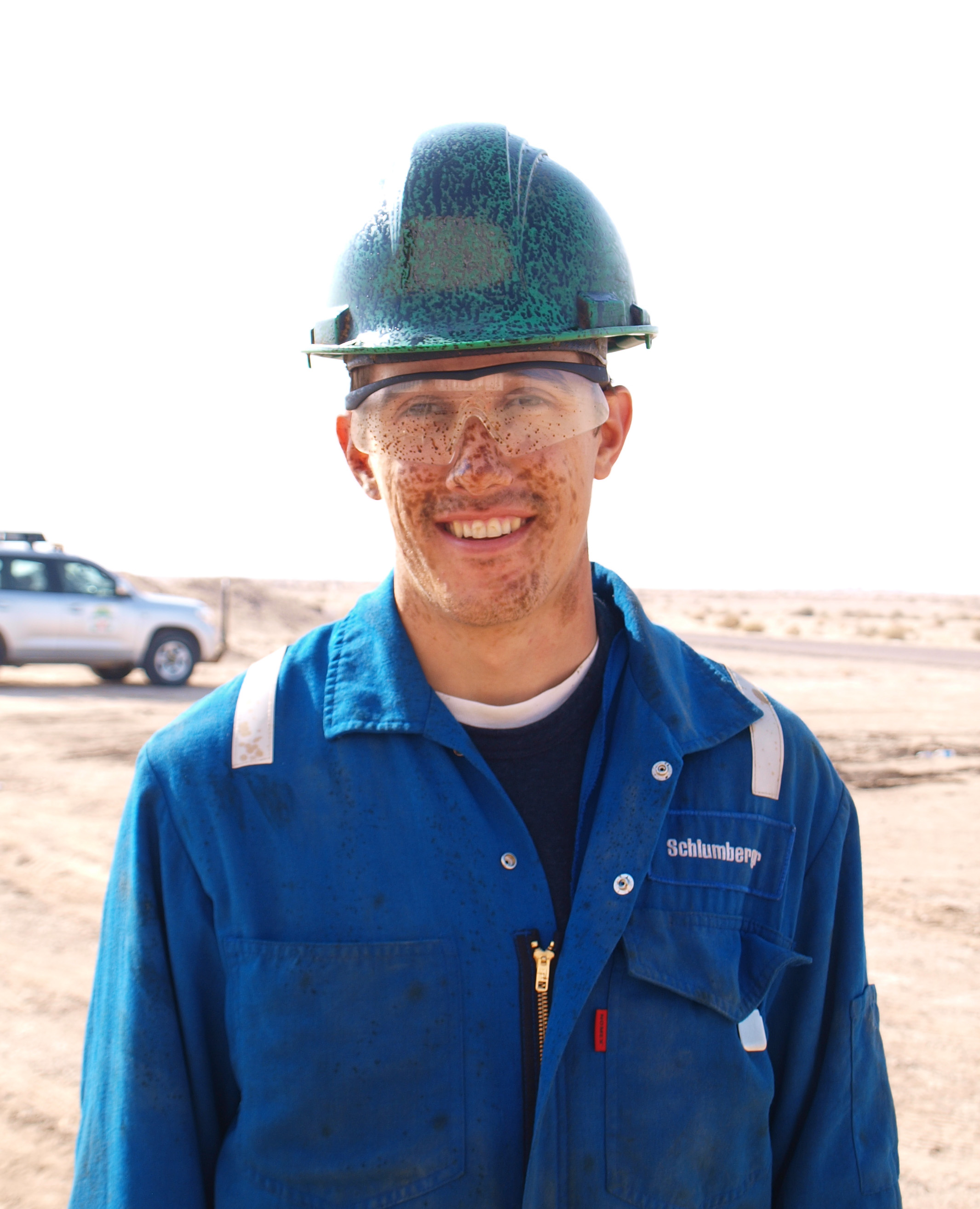
Iraq: Living in a conflict zone
The Iraq War officially ended in December 2011, the same month that Sean Zeeck ’10 arrived in the country to work for the oilfield services company Schlumberger. But there were still isolated attacks, and security was tight.
Zeeck lived on a former military base near the Rumaila oil field in southern Iraq. Armed guards accompanied workers to the site, where they toiled in 120-degree heat restoring wells that had been shut down during the war. They worked 100-hour weeks for two months, then were sent home to the U.S. to recuperate for three weeks before returning for another two-month stint. Zeeck kept up this routine for two and a half years.
“It was pretty stressful,” Zeeck said, but he acknowledged the tough conditions
also promoted teamwork. “When you’re forced into that situation, everyone tends to band together pretty well. You don’t think about the negatives because you have to work together so much.”
He was one of only five Americans on the former base, and he developed close friendships with Iraqis. One day while he was enjoying some rare free time in his “room”—a metal container on the base—he suddenly heard rocks hitting the outside of the container and angry voices outside. An Iraqi friend texted him, telling him to lock his door and turn out the lights.
Someone at an adjacent base had ripped up an Iraqi religious flag, causing an angry mob to form in retaliation. That base went into lockdown, but the mob soon turned its attention to Zeeck’s base next door, and a sympathetic security guard let them in.
Zeeck’s friend continued to communicate with him for hours to make sure he stayed safe. When soldiers arrived to secure the base, Zeeck’s Iraqi friends came to accompany him out of his room.
No one was killed in the incident, but all expats were sent home while the charged political atmosphere cooled. Several of Zeeck’s Iraqi friends offered to let him stay in their homes instead, but because of company protocol, he politely declined.
Zeeck could have ended his work agreement with Schlumberger after that, but he returned for a final stint to complete the work he had started.
Zeeck said the self-discipline he learned at Mines pulled him through the tough times in Iraq. “Mines not only prepares you for all things engineering—it forces you to train yourself to work hard,” he said. And when describing his Iraq experience in job interviews, he explains, “No one has any doubt what my work ethic is.”
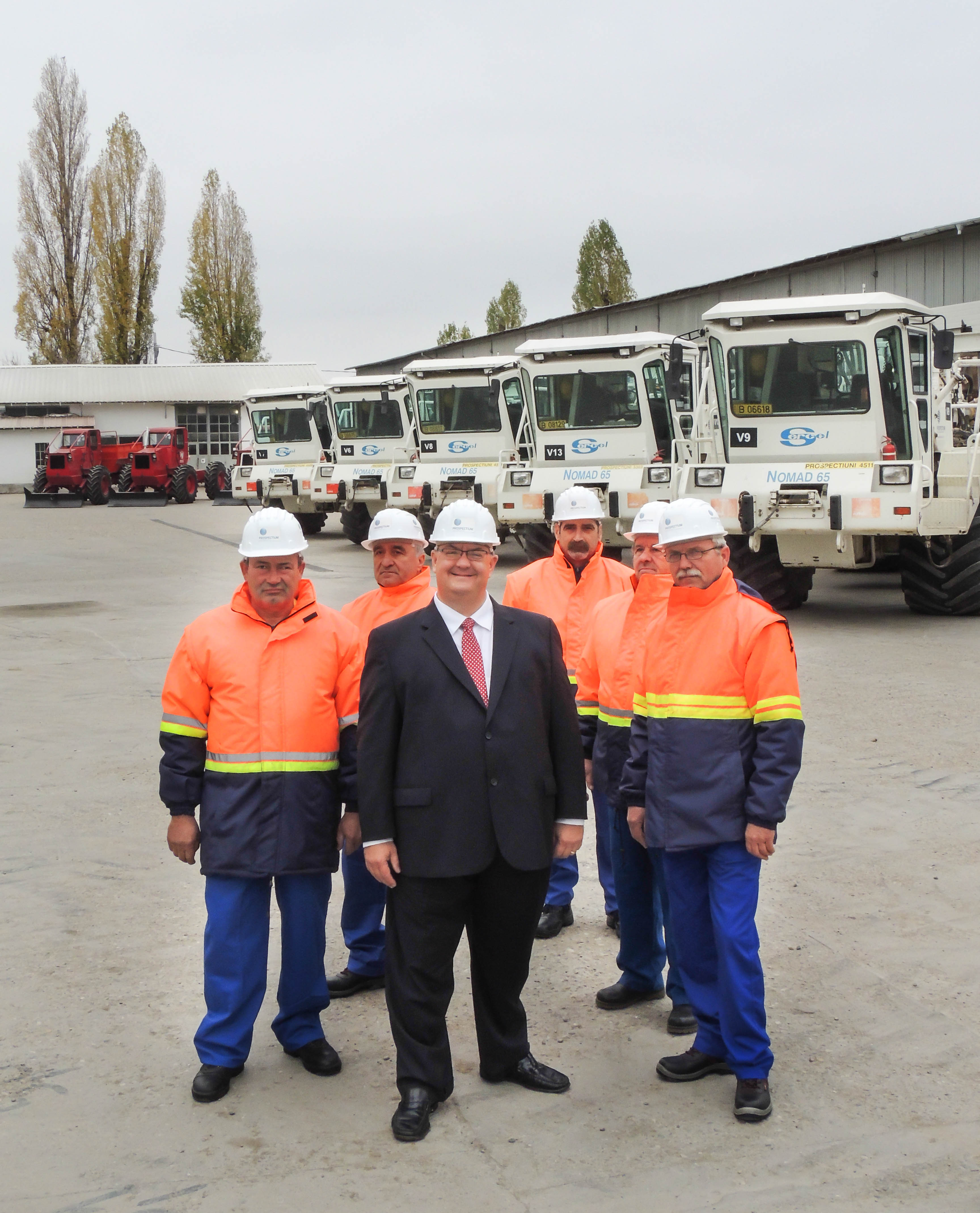
Gabon and Romania: Navigating cultural differences
Gehrig Schultz ’89, the founder and current CEO of Surus Geophysical in the Netherlands, has spent his entire career working internationally. One of his postings was Gabon, where he hired members from local tribes to work on an oil production crew for Western Geophysical. But production on one crew quickly went downhill and fell to zero.
Schultz learned that workers came from rival tribes, separated by religion, custom and longstanding ill will. Some didn’t even speak the others’ languages. They insisted on living in separate quarters, and one group refused to take others to the job site, resulting in a shortage of people to run the equipment. “We made a mess you could not imagine, mixing lifelong enemies,” Schultz said.
To get the groups working efficiently with each other, Schultz helped create a rewards system in which workers who were the most productive and upheld safety standards wore clothing in colors identifying them as the best team. It worked. “The people in reward colors were respected by everybody, no matter which tribe they were from,” Schultz said.
Schultz attributes his management skills in part to Mines’ EPICS program,
which teaches students to work in teams. The McBride Honors program was equally important, helping him obtain work lobbying and working for state legislatures. “I learned the social and diplomatic skills that were key to my future success,” he explained.
Schultz exercised his diplomacy skills again in Romania, where he led a geophysical company struggling to emerge from an anachronistic state-run culture, and whose five-year plans ignored serious cash flow problems.
Staffers hand-wrote financial statements on legal pads, and the average age of workers was 58, in a country with a retirement age of 62.
Over eight years, Schultz managed to turn the company around, making the culture more dynamic without alienating people, while modernizing operations, expanding to 11 countries and growing revenue from $28 million to $130 million.
He helped his own workers learn new methods and become more efficient, but he wanted to do more. To inspire a new generation of mining engineers, Schultz created a summer camp for Romanian college students based on the geophysical camps he remembered attending at Mines. The camps give young people hands-on experience in geology and have expanded to include students from Serbia, Poland and Ukraine. Schultz is working to add U.K. students to the mix.
Achieving success abroad entails understanding the perspectives of the people around you and adapting your ideas to their environment, Schultz said. “It’s about understanding the culture and organizing things in a way that makes sense for the people you’re working with.”
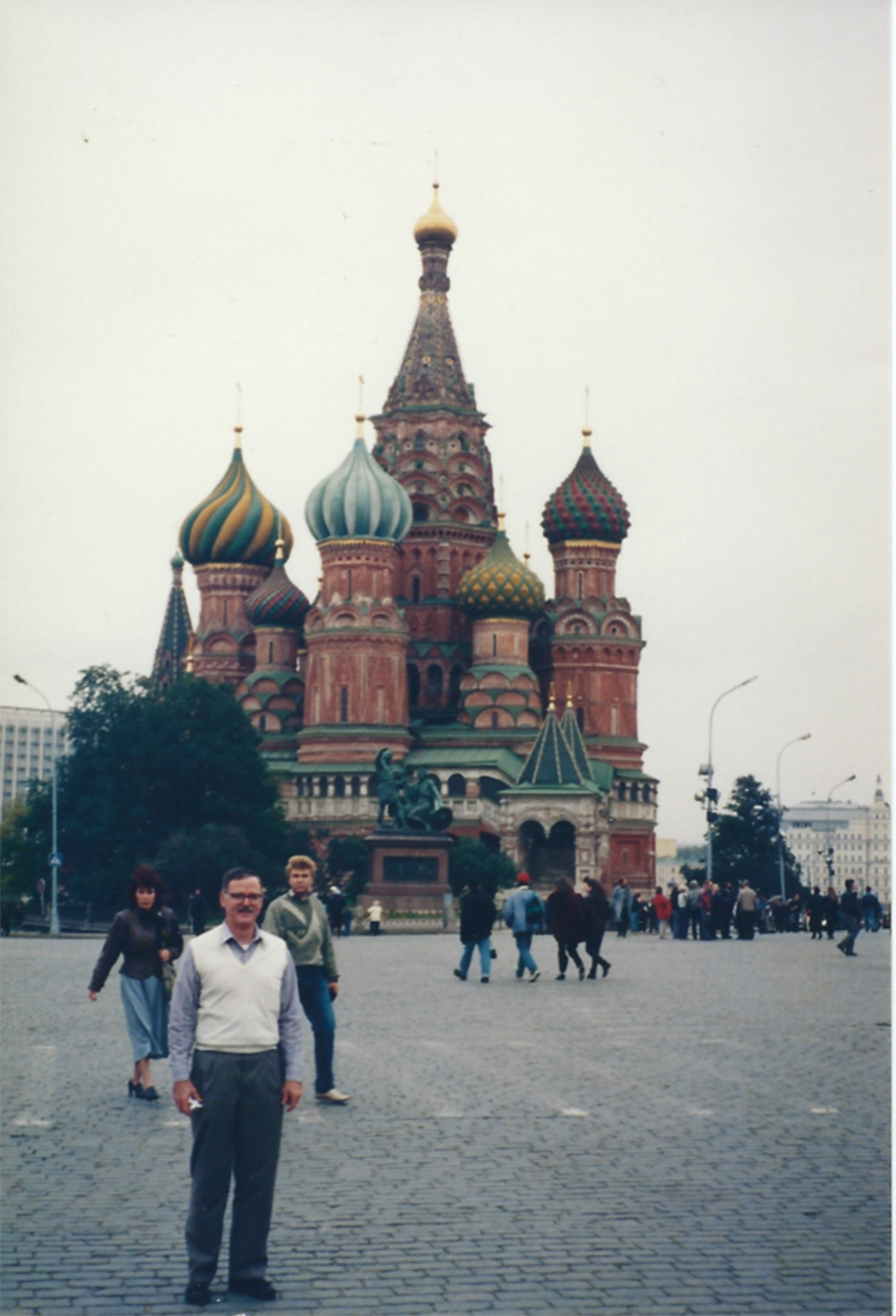
Russia: Playing political football
Corwin “Corky” Rose ’70 expected to face many challenges when Chevron sent him to Moscow to be the engineering manager for the Caspian Pipeline Consortium. He had worked on the pipeline in Kazakhstan and London and knew it required coordinating a variety of stakeholders, including the governments of Russia, Kazakhstan and other countries,
as well as private oil companies.
What he didn’t anticipate was the extent of political maneuvering that would accompany every step of the process. The Russian government disliked foreigners making decisions about a pipeline on its soil and blocked many measures the other partners believed were in the pipeline’s best interest, Rose said. “Every major decision became a political football,” he added.
When problems appeared intractable, Rose applied the creative thinking he learned at Mines. “Mines trains people to think outside the box and come up with unique solutions to problems,” he said. Eventually, Chevron and the other partners found ways to gain cooperation, often by making strategic concessions, such as hiring Russian contractors to do pipeline work.
Another challenge Rose experienced was getting the 22 Russians who worked for him to make decisions on their own. “They were all very capable and knowledgeable, but in the Russian culture, the manager makes all the decisions,” Rose said. Previously, a worker’s wrong decision could result in severe punishment.
“It took us five years to get them comfortable about making decisions,” Rose said. “They had to understand
we had their backs, and if something went wrong, they were not going to
be punished.”
Watching his workers develop confidence in their decisions was one of the highlights of Rose’s Moscow experience. Another was the pipeline itself. Despite all the challenges, the consortium managed to keep it running at 98 percent efficiency, a world standard. “We got our maintenance done, there were no ruptures and we moved as much oil
as we could move,” he said.
Look before you leap
Working abroad in the oil and gas industry may not be for everyone, but for those willing to embrace the challenges, the rewards are rich.
Schultz suggests that graduates considering international work try short-term assignments first. “It’s one thing to work with people from other countries and another to live in their country,” he said.
Skeene agrees and says that’s especially true for those considering developing countries, where dealing with crime, corruption and poverty requires a high level of patience and maturity.
Above all, to gain from an experience abroad, you need to put down your phone, get outside your comfort zone and talk to people, Schultz said. “Understand their history, eat what they eat, dance what they dance, celebrate what they celebrate,” he explained. “It helps you grow in ways you can’t foresee.”


